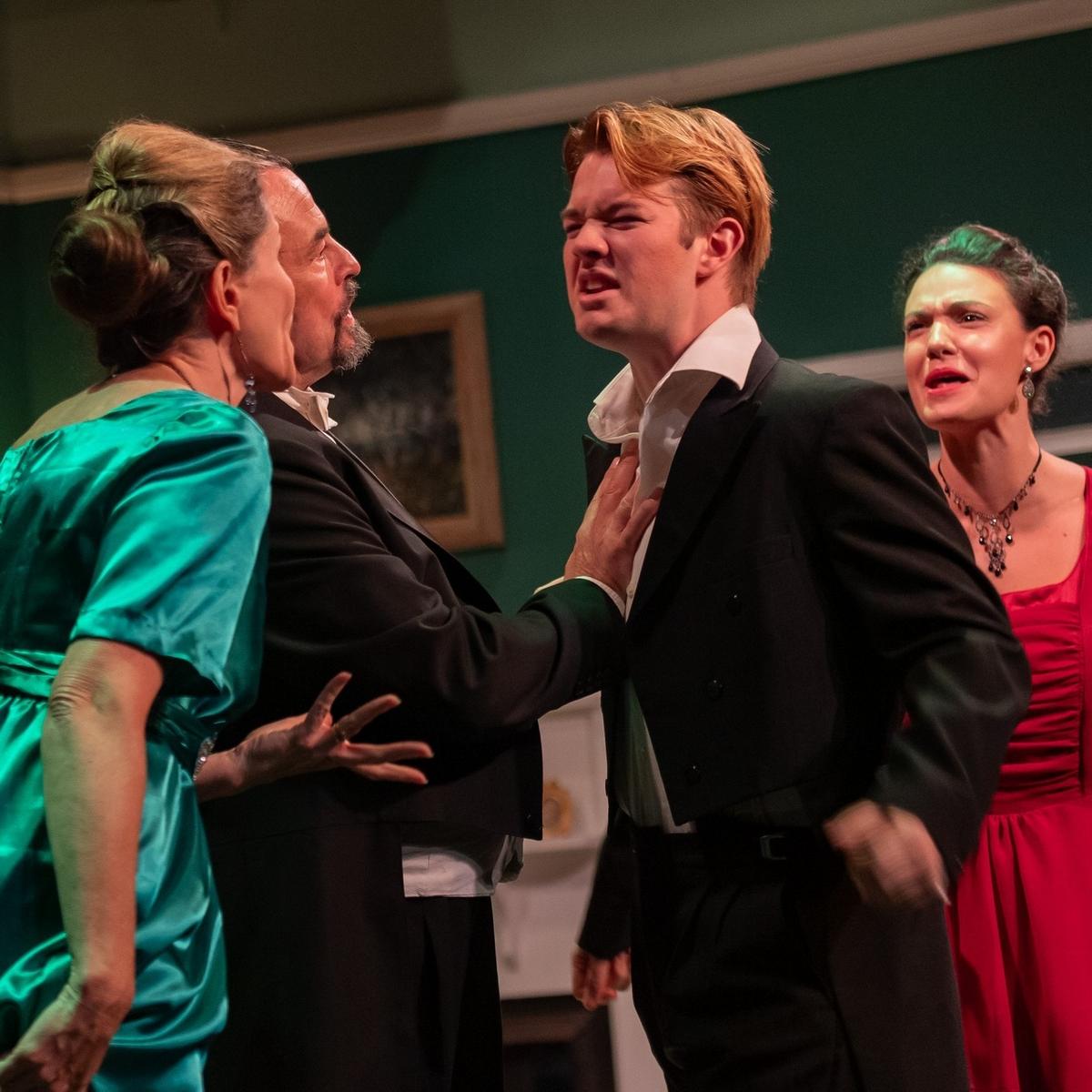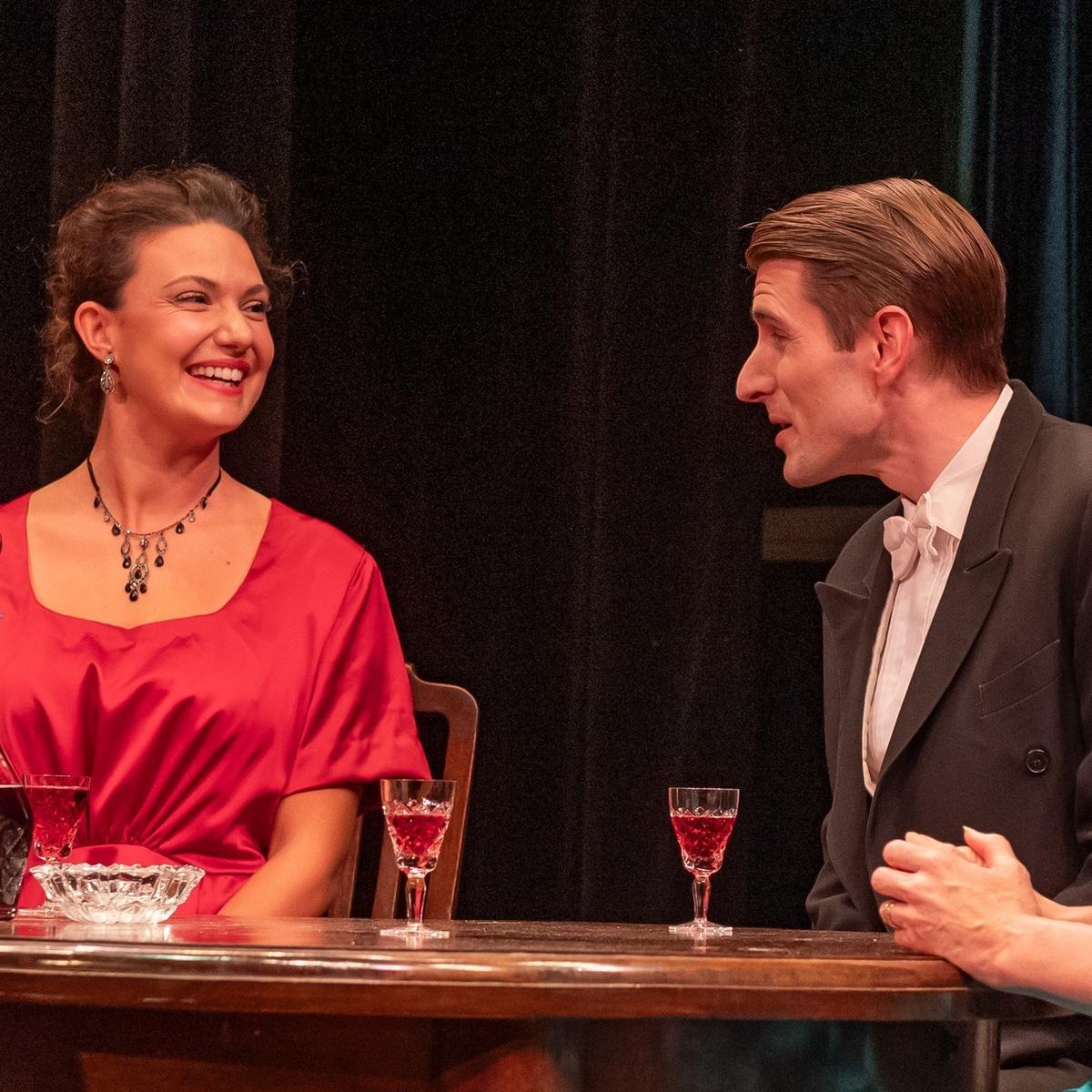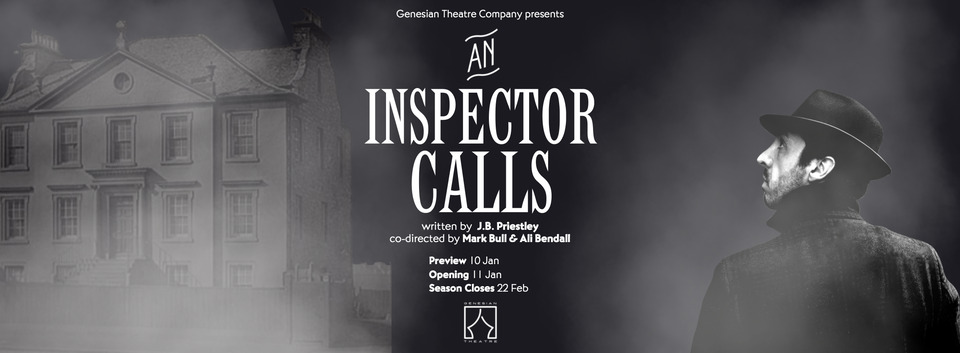With its first twist, An Inspector Calls locks the audience into an intriguing labyrinth where the seven sins are put on trial and the reckoning begins. Playwright J.B. Priestley elevates what appears to be a straightforward police inquiry into a searing social critique, urging us to examine not just the corrupt elite, but our own part in the drama.
In the midst of their self-satisfied revelry, the Birlings receive an unexpected visit from an enigmatic inspector. A typical inquiry into a young woman’s suicide transforms into a scathing indictment of the far-reaching consequences of individual actions as he methodically unravels a web of arrogance, elitism, and social injustice. It’s a chilling reminder that no one escapes accountability—not even the seemingly untouchable.
While the script can feel wordy at times, with recurring motifs, the pacing unwinds steadily, allowing the tension to build. The choice to divide the play into three acts proves effective, with each act ending on a cliffhanger. The seven-member ensemble is finely tuned, expertly portraying their characters’ flaws and fatuities, ensuring the story remains engaging from start to finish.
Vincent Andriano, as Inspector Goole, serves as Priestley’s mouthpiece, evolving from a cheery, cordial demeanor into an imposing, omnipotent figure and ultimately an avenging angel. As Goole’s forceful nature emerges, his moral authority becomes both gripping and thought-provoking. Andriano’s expert use of pauses and knowing glances heightens the atmosphere most effectively.
Annabel Cotton and David M. Bond portray the Birling patriarch and matriarch, Arthur and Sybil, exuding an undeniable sense of arrogance and entitlement. Both share a striking similarity in their imperious natures, displaying an unyielding superiority that is both aggravating and all-too-recognisable. A distinctly nonchalant coldness.The audience is both repelled and riveted by their haughty hypocrisy.



Thanks to the Inspector’s timely arrival, the younger generation has a chance to break free. Here there is hope. Eric and Sheila Birling both grapple with guilt, slowly awakening to self-awareness and truth-telling. Harry Charlesworth delivers a beautifully nuanced portrayal of Eric, a young man burdened with the weight of his family’s decayed legacy, offering a marked juxtaposition to his parents awful indifference.
Rebecca Liquorish delivers a commanding and layered performance as Sheila, capturing her transformation from naive arrogance to sharp moral clarity, a liberating journey from ignorance to self-expression. Authentic and compelling, Liquorish makes Sheila’s evolution both believable and redemptive.
Meredith Blee portrays Edna, the servant, with quiet dignity, reinforcing the sharp class divide and the Birlings’ indifference to those beneath them. Simon Pearce plays Gerald Croft, Sheila’s fiancé, highlighting how Croft’s seemingly benign demeanor and moral ambiguity mask deeper and more dangerous complacency. He embodies moral convenience, offering just enough charm to deflect scrutiny while remaining complicit in the darker actions of those around him.
An Inspector Calls is the perfect choice to inaugurate the Genesian’s new Rozelle premises. This lovely space effortlessly blends art deco with modern comfort and cutting-edge technology. The production’s Edwardian elegance shines through a rich colour palette and refined set design, with deep, opulent hues capturing the grandeur of the era. Family portraits, more than mere decoration, serve as proud emblems of the Birling dynasty, while Susan Carveth’s sumptuous costumes subtly underscore the social hierarchy.
Co-directors Ali Bendall and Mark Bull have crafted a tightly woven slow-burn, infused with a hint of the supernatural. The conflict between resistance and realisation is what truly holds our attention. We long for each characters’ moment of capitulation, as they squirm beneath the Inspector’s steady gaze and probing words.
This fascinating premise invites us to imagine a world where an inspector holds everyone responsible whereby our actions are judged, with no escape. As Goole states, “We don’t live alone. We are members of one body. We are responsible for each other.” Ultimately, we are all faced with an uncomfortable truth: accountability isn’t reserved for the wealthy, no matter how much we deny it. And one day, it may very well come calling.
For more details on this production, visit https://www.genesiantheatre.com.au/

